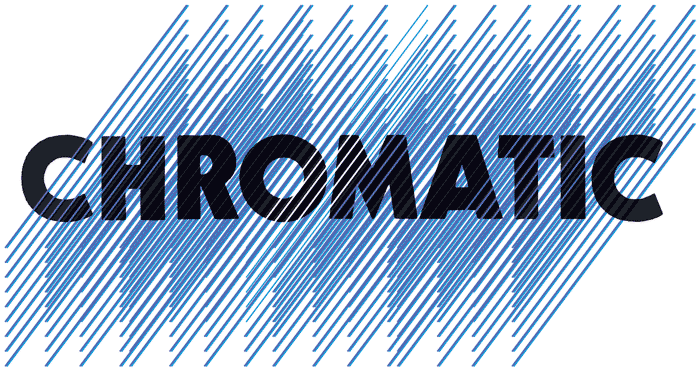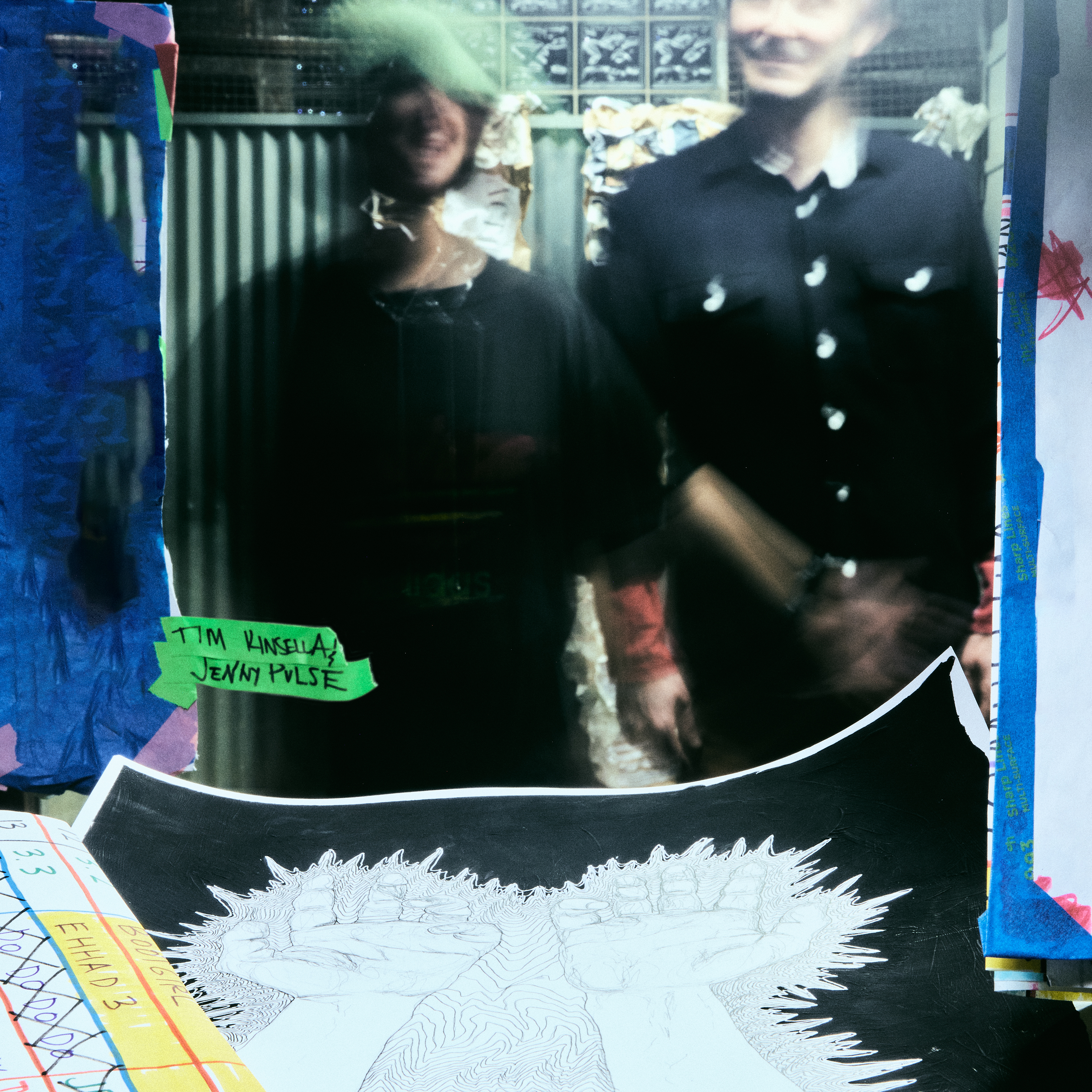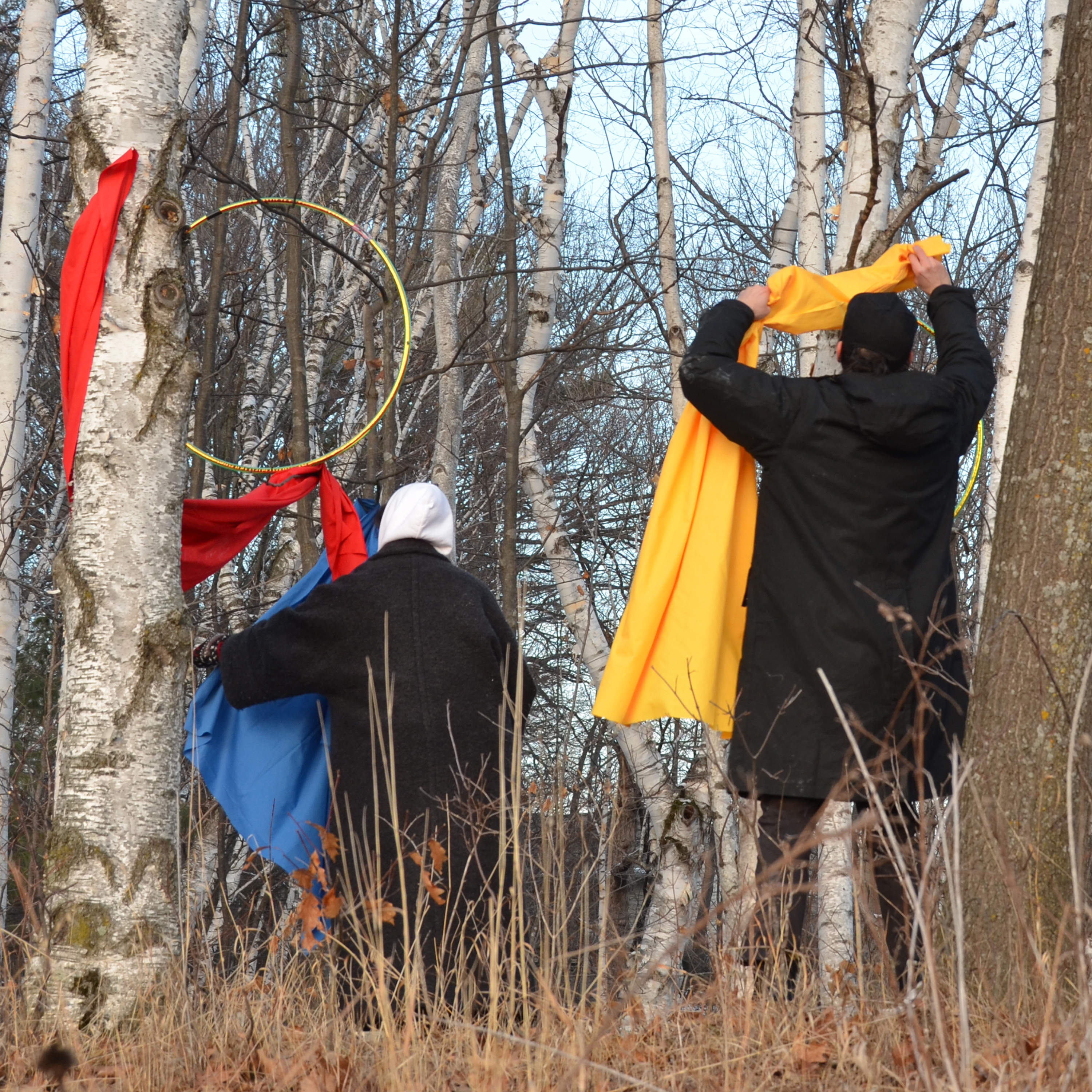TIM KINSELLA & JENNY PULSE
Tim Kinsella & Jenny Pulse
Giddy Skelter
Kill Rock Stars
Tim Kinsella and Jenny Pulse have spent years making thoughtful and unpredictable art, whether musically as Joan of Arc or Spa Moans, or under their given names as writers and visual artists. On Giddy Skelter, their debut album as the unadorned “Tim Kinsella and Jenny Pulse,” they once again take an unexpected turn, but aim for something more direct. They’ve crafted a swirling, past-future, future-past, sorta-rock, collage-rock, melange borne from the confined anxiety of the pandemic. It’s a full-length undeniably of its moment, rich with musical references while radiating a visionary path forward.
"I was an electronic producer who wanted to be in a rock band and Tim was in a rock band and wanted to become more of a producer,” recalls Pulse. “But at the end of the day we realized we can't escape ourselves. Despite wanting to depart from the past, we settled into what we are each good at, but with different gear and approaches to try and create something surprising to ourselves."
Kinsella and Pulse implemented an extensive and guided process, one they elaborately detailed and practically itemized in a 22-page zine, titled HOW TO MAKE THE ALBUM YOU’RE TRYING TO MAKE Giddy Skelter: A Case Study. They started by creating colorful charts and notes, consisting of musical prompts like “Can/Neu!” and “Craig Leon/Dekmantel,” on 18 x 24 pieces of paper. They developed standards for their approach, like “Perform the marrow of the form.” They read books on creativity and practice. Pulse took bass lessons and Kinsella took Ableton lessons, mediums they were previously unfamiliar with. And most importantly, they worked their asses off. By New Year’s Day 2021, they had 50 songs.
For lyrics, Kinsella and Pulse wanted to avoid strident sloganeering, flat literalism, or instances where listeners might lapse into reflexive interpretation. So they devised a similar methodology to their music making: They composed 75 pages of phrases they liked, cut them up a la William Burroughs and Brion Grysin, tossed the fragments in a box, then pulled each one and matched them to a song where they felt the words fit.
To assemble Giddy Skelter, Kinsella and Pulse aggressively culled their tracklist until they had a lean and impactful 11 songs, unlike anything either musician has released before. Opening track “Unblock Obstacles” chugs along on a three-chord riff and dubbed-out drums before venturing into a hypnotic, feedback-filled drone that channels pre-Loveless My Bloody Valentine. “Over and Over” imagines a world where Slowdive or Lush collaborated with Prefuse 73. On “Nena,” one minute features loops of classical piano, the next Spacemen 3-style psychedelic drone, and the next contemporary R&B. The majority of songs on Giddy Skelter foreground Pulse’s yearning, ethereal vocals, giving the music a distinctly feminine overtone.
By mixing live instrumentation with samples so manipulated it’s impossible to tell their origins, Kinsella and Pulse create music that feels both eerily familiar yet inarguably the product of their effort, a testament to their exacting process.
The title Giddy Skelter alludes to both Gimme Shelter, the infamous documentary about the Rolling Stones’ disastrous Altamont free concert, and the Manson Family’s Helter Skelter scenario. But none of this is an homage to a bygone era. “In my mind, it's this period at the end of the dream, the end of the 60s, the idea of this utopia,” Kinsella says. “Now, with lingering pandemic and its consequences, rising authoritarianism, looming climate catastrophe, these unsustainable levels of anxiety and chaos, the eras feel similarly apocalyptic.”
And there’s another dimension to the title: It can be interpreted alchemically, combining two of the most popular songs in rock history — “Gimme Shelter” and “Helter Skelter” — both of which have sinister associations that give them greater gravity. Sometimes the thing that makes great rock n’ roll is the ineffable and the intangible, something you can only describe as alchemy; other times it’s the rigors of process. On Kinsella and Pulse’s Giddy Skelter, it’s both — and it sounds unlike anything else you’ll hear this year.









